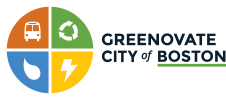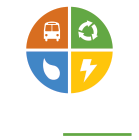
In Boston, we are all connected through our water. People, who live, work in, or visit the city all enjoy our harbor, rivers, brooks, and ponds – our waterways – and keeping them pollution-free is a priority. When it rains or snows, the water that flows down our streets and sidewalks, called stormwater, picks up materials along the way.
Stormwater flows through our neighborhoods, into catch basins, then into streams, rivers, and eventually into Boston Harbor. Catch basins are the grates on our streets, which collect the stormwater runoff and anything unintentionally placed or purposefully dumped on the street. Catch basins connect to the storm drain system, which moves the water and everything in the water, into the Charles, Neponset, and Mystic Rivers and into the harbor. The storm drain system is not connected to the sewer system, so the stormwater runs directly into waterways and the harbor.
What Is Stormwater Pollution?
Discarded items, including trash and pet waste, and hazardous materials, such as pesticides, fertilizers, automotive fluids, motor oil, and paint on the ground are picked up by stormwater and can flow into the storm drain system. These pollutants can be harmful to water quality and the environment. By properly disposing of these items and keeping them from entering the storm drain system, you can help prevent pollution in Boston’s waterways.
What Can We Do?
Residential Property
- Scoop the Poop: Pick up after dogs and throw the waste into a trash can.
- Use Trash Cans: Place everyday items, including cigarette butts, drink containers, and lottery tickets, into a trash can or appropriate receptacle.
- Do more: Keep a plastic bag in your car, purse, or bag to collect trash as you go about the city.
- Clear Catch Basins: Remove leaves and trash from the tops of catch basins to help ensure stormwater flow. Report catch basins that are clogged and not accepting stormwater to BWSC for cleaning at (617)-989-7000. Find your nearest catch basin online here.
- Reduce Chemical Use: Use less pesticides and fertilizers on lawns and gardens. Switch to phosphate-free cleaning products when washing cars and use low-phosphate fertilizer.
- Report Illegal Dumping: Don’t dump household hazardous waste products, such as motor oil, paint and other chemicals into catch basins. Bring them to Hazardous Waste Days sponsored by the City of Boston. Dumping any material into the storm drains is illegal with fines up to $5,000 per day. If you see illegal dumping, report it immediately to BWSC at (617)-989-7000.
- Report catch basins that are clogged with debris to BWSC for cleaning and report someone illegally dumping into a catch basin immediately to BWSC at (617)-989-7000.
Property owners are responsible for all pollutants leaving their property. In most cases, tenants (either residential or commercial) do not see information mailed from BWSC because only ratepayers receive important stormwater pollution information with their bill. If you would like information to share with your tenants or members of your association, please visit BWSC’s Resources page, download and print the information and distribute it to your tenants. Educating everyone living in your property could avoid costly plumbing repairs and help prevent stormwater pollution.
For more information, visit BWSC’s Residential Property resource page.
Commercial Property
- Sweep outdoor areas and throw debris, including leaves, into the trash can, not into a catch basin. Do not use detergents or chemical cleaners to hose down areas and be sure to direct the runoff away from the catch basin.
- Place trash cans and cigarette receptacle in highly trafficked, visible areas including employee break areas.
- Keep the area around dumpsters clean and the lids closed. Place them away from catch basins. Make sure the clean-out plug is properly secured to prevent leaking. Have the containers cleaned on a regular basis and store spill equipment on-site to clean up spills and releases.
- Ensure hazardous materials are disposed of properly by asking the manufacturer or contacting the Massachusetts Hazardous Waste Hotline for Businesses at (617)-292-5898.
- Pour wash water into a janitorial sink or a floor drain that is connected to the sanitary sewer system. Never pour wash water onto a parking lot or into catch basins.
- Install and maintain grease traps and never pour cooking oil, grease or fats into sinks, floor drains, solid waste containers or into a catch basin.
- Report catch basins that are clogged with debris and not accepting stormwater, to BWSC for cleaning and report someone illegally dumping into a catch basin immediately to BWSC at (617)-989-7000. Dumping any material into catch basins is illegal with fines up to $5,000 per day of violation.
Property owners are responsible for all pollutants leaving their property. In most cases, your commercial tenants and visitors do not see information mailed from BWSC because only ratepayers, like you, receive important stormwater pollution information with their bill. If you would like information to share with your tenants, please visit BWSC’s Resources page, and look for the Stormwater Management for Small Businesses brochure. Download and print the information and distribute it to your tenants. Educating your tenants could avoid costly plumbing repairs and help prevent stormwater pollution.
For more information, visit BWSC’s Commercial Resource page.
For more information on how you can get involved in helping prevent stormwater pollution, including printed materials and resources for children and teachers, visitBWSC’s resources page.


Recent Comments